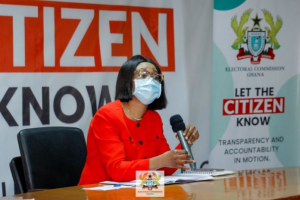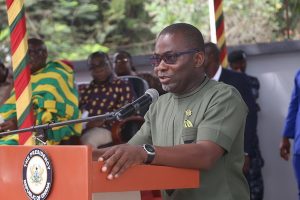The Supreme Court has handed activist Oliver Barker-Vormawor, a cost of GHc10,000 as it dismissed a case he represented on.
Obviously dissatisfied with the standards of processes filed, as well as the quality of Mr. Baker-Vormavor’s Legal representation in court on Tuesday, the court said the application was “frivolous”, “vexatious” and the court found “no merit in it”.
The vociferous activist was a lawyer on the record for a group calling itself Democratic Accountability Lab in a matter before the court.
The group was seeking to commit the Commissioner-General, Ghana Revenue Authority, and the Ghana Revenue Authority itself, to contempt for the May 1, 2022 implementation of the controversial e-levy, while there was an injunction application pending in respect of the implementation.
The group told the court that the action had the effect of exposing the court to ridicule.
Sooner had Oliver Barker-Vormawor announced himself than a barrage of questions engulfed him, ranging from standard practices, through procedure to substantive law, including precedent (decided cases).
President of the 7-member Court, Nene Amegatcher quizzed him on the propriety of the title of the case brought before the court.
He also asked why the charge was not directed at any specific official of the Ghana Revenue Authority (GRA), noting that organisations cannot be cited for contempt.
The ladies and Lords of the Court again demanded from him the legal basis upon which he sought to appear before them, and to commit the public official and institution “to prison”.
As His Lordship, Emmanuel Yoni Kulendi thundered calmly, “we are a court of law, not an NGO. What we want is your legal authority, not your opinion and speeches”.
For Her Ladyship, Prof. Mensah-Bonsu, Mr. Barker-Vomarvor came “as an officious bystander”.
“You cannot be an outsider who weeps louder than the bereaved. So we want to hear you on the law and the authorities”, Her Ladyship hammered.
Reeling under the weight and heat of the blast, the outspoken activist sought refuge under a 1976 High Court decision in Okine v. Mawu & Another.
This case, according to lawyer Barker-Vormawor, is basis that a contempt application may be brought by even a stranger.
Just as lady Lovelace Johnson pushed for the facts of this authority and the exact holding of the Court, lord Professor Ashie Kotei was asking why a 1976 High Court decision was being used to argue a case in 2022 at the Supreme Court.
Not moved by the submissions of the Democratic Accountability Lab’s lawyer, the Court said it did “not think we should call on counsel for the second respondent to respond, the applicant in our view has no locus in this matter”.
“The application itself,” the Court said, “is defective and does not measure up to the practice of instituting origination notice of motions in this court.”
Here is the full complement of the Court, Nene Amegatcher as President, Prof Ashie Kotey, Mariama Owusu, Lovelace Johnson, Gertrude Torkonoo, Prof Henrietta Mensah Bonsu and Emmanuel Yoni Kulendi







